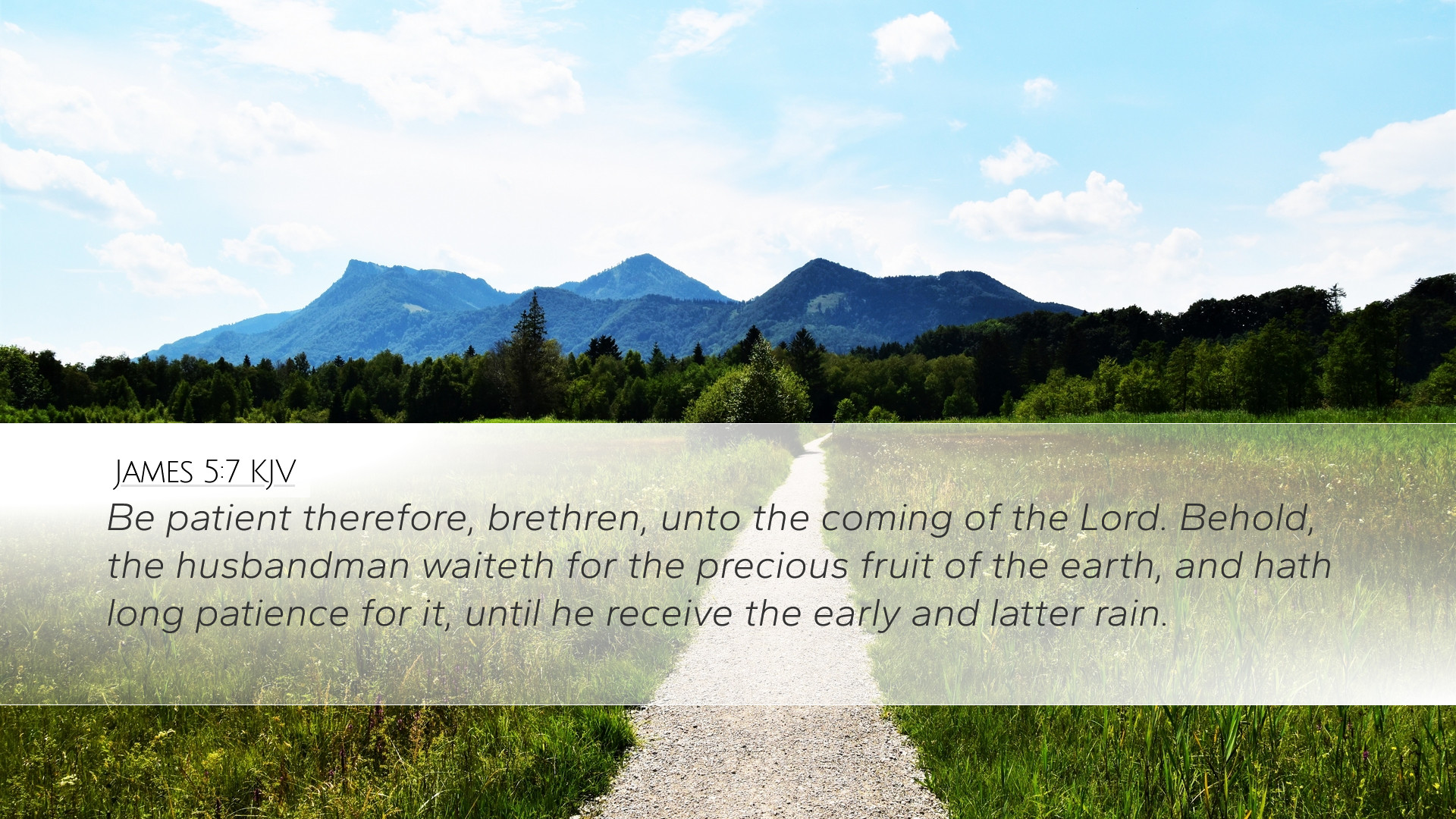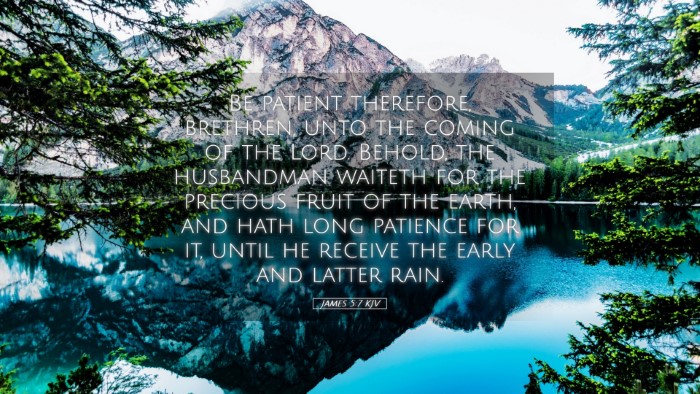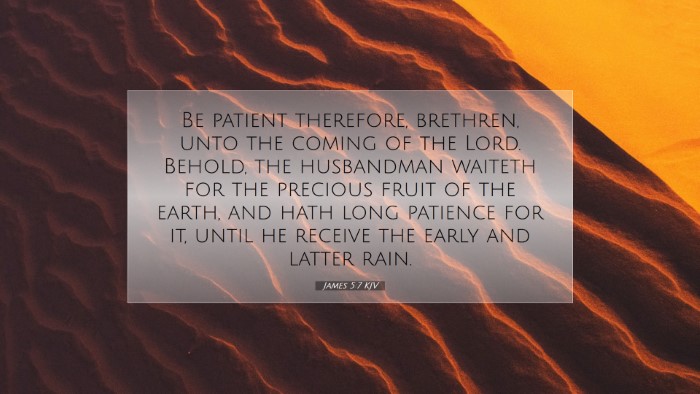Old Testament
Genesis Exodus Leviticus Numbers Deuteronomy Joshua Judges Ruth 1 Samuel 2 Samuel 1 Kings 2 Kings 1 Chronicles 2 Chronicles Ezra Nehemiah Esther Job Psalms Proverbs Ecclesiastes Song of Solomon Isaiah Jeremiah Lamentations Ezekiel Daniel Hosea Joel Amos Obadiah Jonah Micah Nahum Habakkuk Zephaniah Haggai Zechariah MalachiJames 5:7
James 5:7 KJV
Be patient therefore, brethren, unto the coming of the Lord. Behold, the husbandman waiteth for the precious fruit of the earth, and hath long patience for it, until he receive the early and latter rain.
James 5:7 Bible Commentary
Commentary on James 5:7
Introduction
James 5:7 states: "Be patient therefore, brethren, unto the coming of the Lord. Behold, the husbandman waiteth for the precious fruit of the earth, and hath long patience for it, until he receives the early and latter rain." This verse speaks profoundly about the Christian virtue of patience in light of eschatological hope. In examining this text, we draw insights from several public domain commentaries, including those of Matthew Henry, Albert Barnes, and Adam Clarke.
Exegesis of James 5:7
James is writing to a community facing trials and suffering, encouraging them to remain steadfast. The call to patience is pivotal; it is not a passive waiting but an active trust in God's promises. This verse serves as an exhortation to the believers, reminding them of the future return of Christ as a source of hope.
Patience in the Christian Life
Matthew Henry notes that patience is a fruit of the Spirit, crucial in the face of afflictions. Just as a farmer waits for crops to mature, believers must wait for the culmination of God’s promises. The analogy here serves not only to illustrate patience but also to emphasize the expectation of reward. The waiting farmer is rewarded with ‘precious fruit,’ symbolizing the blessings that God has in store for His people.
Henry writes: “Patience under trial is necessary; the hope of our Lord’s coming should support us.”
The Coming of the Lord
Albert Barnes reinforces the importance of the second coming of Christ. He suggests that the phrase "the coming of the Lord" points to a personal and imminent return of Christ. This was a critical encouragement for first-century Christians who faced persecution. Barnes emphasizes that understanding the nearness of Christ’s return helps believers to cultivate patience in tribulations.
Barnes states: “The Lord will come again, and it is the duty of believers to await His return with faith and earnestness.”
The Farming Analogy
The imagery of the farmer waiting for rain reflects the necessary seasons before harvesting. Adam Clarke elaborates on this metaphor, noting that a farmer must rely on factors beyond his control, such as weather conditions. Likewise, Christians must often wait for divine interventions in their lives. This metaphor emphasizes the nature of waiting—trusting the process and recognizing God’s timing as perfect.
Clarke observes: “The husbandman’s waiting is indispensable; without it, there is no harvest—the same is true in spiritual matters.”
Application for Believers
Patience is more than a passive state; it is an active duty. The Christian community is called to remain steadfast, embodied in the waiting of the farmer. This patience stems from an understanding of God's overarching plan and trust that He will fulfill His promises.
The Role of Suffering
Suffering is an essential part of the Christian's journey. Matthew Henry reminds us that trials produce endurance. Believers are encouraged to face their afflictions with the hope found in Jesus’ ultimate return. This hope is a sustaining force.
Encouragement for Community
James addresses the community as “brethren.” This communal aspect is vital. Believers should support one another in patience, encouraging each other as they face tribulations. Barnes mentions that patience is not solely an individual virtue but a communal responsibility where Christians uplift one another.
Conclusion
James 5:7 is a rich text that provides profound insights into the nature of patience and the hope of Christ's return. By comparing Christians to farmers, it relates the waiting for Christ to the agricultural process—necessary yet often unwelcome, filled with uncertainties. However, as believers cultivate patience actively while awaiting the coming of the Lord, they embody faith and trust in God's timing and purposes.
Final Exhortation: Let us strive to embody this patience in our lives, encouraging one another, understanding that our labor in the Lord is not in vain, and that the "precious fruit" awaits those who endure with hope.


